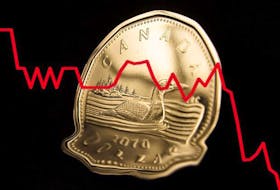Certain investors like to hold gold – and it’s easy to understand why. From early civilizations to dynasties, empires and kingdoms, gold has held value, and for centuries it’s been a recognized monetary currency throughout most of the world because it is scarce, controllable and recognizable. It has been long established as a symbol of art, spirituality and wealth – and continues to be so today.

Even in this digital age of credit, debit and paper currency, gold is still considered valuable and, for some investors, a valuable part of an investment portfolio.
But is gold a good choice for you as an investment, especially for your retirement? Not necessarily, and here’s why.
Gold is, well, gold – and it still has an emotional pull for many people. But when you remove emotion from the equation, investment data paints a different picture of gold.
In August 2016, two economics professors from Harvard University released a study titled Gold Returns published in The Economic Journal, which examined long-term U.S. data, and argued that “changes in real gold prices co-vary negligibly with growth rates of consumption and, moreover, gold has not delivered high average real returns during macroeconomic disasters.”
In other words, turning to gold during times of economic decline doesn’t necessarily provide the diversification needed to offset losses. Where it may help, though, is during a low interest rate environment as noted in “Negative Interest Rates: Implications for Investors,” published by the Investors Group Investment Strategy Group.
That’s because gold has no yield, so it can be attractive when yields on other assets start to fall. For instance, its relationship with bond yields is typically inverse – when yields go down, gold strengthens, and vice versa. That’s why people sometimes use it as an inflation hedge.
Proponents of gold recommend having about five per cent of assets in the yellow metal. History has shown that it doesn’t hold its value, and unlike stocks, gold has been known to be subject to lengthy periods of stagnation. So, if you are going to invest in gold it should only be in very small amounts.
There are many proven investment strategies for growing your wealth and funding a comfortable retirement. Whether one of them is to include gold in your portfolio depends on your unique financial goals and tolerance for risk. That’s why you should talk to your professional advisor to get gold standard advice about the right comprehensive financial plan for you.
Jeff Somers, BA, RRC, CFP, is with the Investors Group in Charlottetown. This column is written and published by IG Wealth Management as a general source of information only. It is not intended as a solicitation to buy or sell specific investments or to provide tax, legal or investment advice. Contact your own adviser for specific advice about your circumstances.








